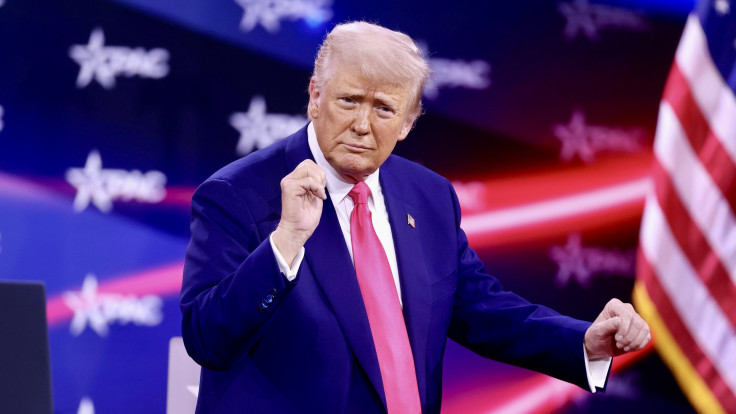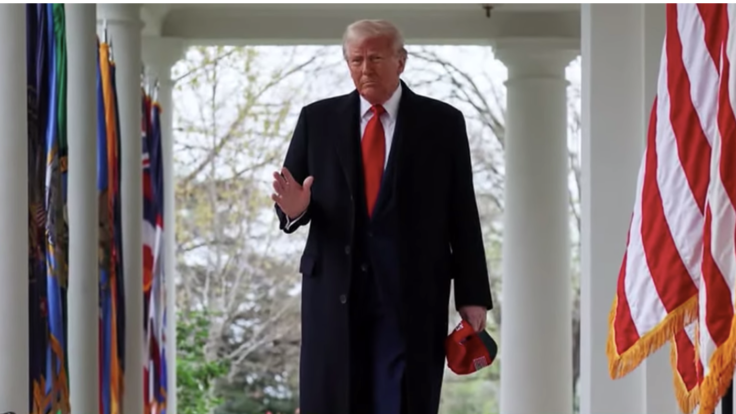Donald Trump Mocked For Saying Being 'Anti-Trump' Is 'Probably Illegal' In Wild Seth Meyers Rant
A Truth Social tirade after a Late Night segment reignites debate over presidential rhetoric, satire and free speech.

Donald Trump launched a blistering tirade on his Truth Social feed after a 'A Closer Look' segment on Late Night with Seth Meyers, calling the host '100% ANTI TRUMP' and suggesting such a stance was 'probably illegal.'
The remark crystallises a widening, unorthodox feud between the White House and late-night comedy, and raises fresh questions about the tone and limits of presidential rhetoric aimed at critics. The episode juxtaposes a comic's satire with a president's public retaliation, illustrating how modern media scraps are now national political theatre.
The exchange also underlines how satire, social platforms, and state power collide in an era of heightened polarisation.
Donald Trump's Post and The Late-Night Spark
On 1 November 2025, Trump posted on Truth Social a string of denunciations aimed at Seth Meyers and NBC, writing: 'NO TALENT, NO RATINGS, 100% ANTI TRUMP, WHICH IS PROBABLY ILLEGAL!!!'
That post, reproduced in full by multiple outlets, followed Meyers's 'A Closer Look' segment, a regular satirical analysis that featured clips of the president's recent speech aboard a US aircraft carrier and Meyers's mock translation of Trump's remarks.
The president singled out Meyers's jokes about 'steam versus electric catapults' and branded the comedian a 'deranged lunatic.'
Meyers's segment, hosted on NBC's Late Night channel and available on YouTube, juxtaposed recordings of the speech with sharp, scripted commentary that framed the president's detour into naval hardware as emblematic of his mind-wandering style.
The clip has been viewed hundreds of thousands of times on the network's official channel and was the proximate cause of Trump's online outburst.
The Legal and Political Stakes
Legal scholars and free-speech advocates immediately reacted to the president's suggestion that political opposition might be 'illegal,' stressing that the First Amendment protects political criticism.
Constitutional experts note there is no basis in US law to criminalise a person or a television host for being 'anti-Trump.' The remark therefore functioned more as rhetorical intimidation than a policy statement, yet its potency stems from the office that uttered it and the president's track record of targeting critics and institutions.
The episode also stresses an institutional vulnerability: Truth Social, Trump's preferred platform, permits the president to bypass traditional media gatekeepers and speak directly to millions, magnifying off-hand lines into news events.
Critics argue that platform use in this way can chill dissent; defenders maintain the president is exercising his own expressive rights. Either way, the exchange demonstrates how presidential grievances can ripple instantly through modern media ecosystems and provoke real reputational costs for individuals and networks.
Late-Night Satire Meets Presidential Retaliation
Late-night satire has long been a pressure valve of American political life, but the relationship between satirists and Trump has become unusually personal and recurrent. Trump has publicly attacked other hosts in recent months and years; NBC extended Meyers's contract through 2028, a fact cited by commentators as evidence that networks still back satirists despite presidential pressure.

For Meyers, being singled out may be a career badge of honour, but it also transforms a comedy segment into a high-stakes political skirmish.
The exchange is both comic and corrosive: viewers see a comedian perform hardened satire while the sitting president uses a government-adjacent platform to denounce that satire as obscene or even criminal.
Audiences on both sides interpret the moment through partisan lenses, which amplifies polarisation rather than fostering civic debate. Staff at networks and legal advisers now routinely assess the risks when their employees lampoon the president, yet the law remains clear about protection for political speech.
© Copyright IBTimes 2025. All rights reserved.





















